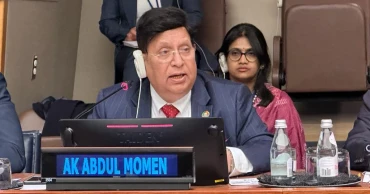healthcare
Govt to cap prices of 295 essential medicines to ease healthcare costs
The interim government on Thursday (January 08, 2026) decided to fix the prices of 295 essential medicines in Bangladesh, making it mandatory for all pharmaceutical companies to sell these drugs at government-determined rates.
The decision was taken at a meeting of the Council of Advisers, aimed at ensuring affordable access to medicines for the majority of the population.
“Prices of 295 essential medicines will be fixed by the government, and all companies will have to comply with these rates. The decision will be implemented very soon,” said Professor Dr Md Sayedur Rahman, Special Assistant to the Chief Adviser for the Ministry of Health and Family Welfare, while briefing reporters at the Foreign Service Academy after the meeting.
He said the list of essential medicines covers treatments for diseases affecting nearly 80 percent of the country’s population.
Read more: Rising medicine prices threaten healthcare for marginalised communities, warns study
“Once prices are fixed by the government, access to these medicines for a large segment of people will be ensured. This decision has been taken so that the cost of medicines does not become a barrier to healthcare for ordinary citizens,” Sayedur Rahman added.
Describing the move by the interim government as a landmark step, he said companies currently selling medicines at prices higher than the government-fixed rates will have to reduce their prices accordingly.
“Those selling at lower prices may continue to do so, or they can adjust to the government-fixed rates if they wish,” Dr Sayedur Rahman said.
Explaining the pricing mechanism for foreign pharmaceutical companies, he said the government will assess company proposals by considering purchasing power parity (PPP). Separate categories will be maintained for under-patent and off-patent medicines.
“A taskforce was formed which held discussions with all stakeholders involved in drug manufacturing and marketing. Initially, it will function as a Drug Price Authority and gradually evolve into a full-fledged authority. This will help remove existing barriers to access to medicines,” he added.
Dr Sayedur Rahman also said the government plans to establish a dedicated Drug Pricing Authority in the future, responsible solely for determining medicine prices. “Considering global market trends and all relevant factors, medicine prices in the local market will then be more rational.”
Read more: Availability of anti-hypertensive medicine at the grassroots level crucial to lower NCD risk
Addressing concerns about substandard medicines, he said there is no such thing as a ‘low-quality medicine’. “If a product lacks quality, it ceases to be a medicine and becomes a chemical substance. The government is fully committed to ensuring quality from every aspect.”
1 month ago
USD 5 billion spent abroad annually due to healthcare gaps in Bangladesh: DCCI
Bangladesh loses around USD 5 billion every year as patients seek medical treatment abroad, mainly due to a lack of trust in the domestic healthcare system, inaccurate diagnoses and weak service management.
The Dhaka Chamber of Commerce and Industry (DCCI) revealed the information at a seminar in the capital on Saturday (December 13, 2025).
The issue was highlighted in the keynote paper presented at the seminar titled 'Building Trust in Bangladesh’s Healthcare Sector: Ensuring a Strategic Framework for Quality Control', held at the DCCI building in Motijheel.
United Hospital Managing Director Malik Talha Ismail Bari, who presented the keynote, said Bangladeshis spend nearly USD 5 billion annually on overseas treatment, with India being the top destination.
Read more: Don’t settle for a weak health savings account
He said around 52 percent of Indian medical visas are issued to Bangladeshi patients. In 2024 alone, about 482,000 Bangladeshi patients received medical treatment in India. Thailand, Singapore and Malaysia follow India as preferred destinations.
The keynote paper pointed out that a lack of trust among patients and their families, doubts over proper diagnosis, sudden increases in hospital bills, fear of hidden charges, concerns over counterfeit medicines and substandard equipment push many to believe that seeking treatment abroad is a safer choice.
Several major challenges stand in the way of improved healthcare services in Bangladesh, the paper said. Government health expenditure remains below 1 percent of GDP, while patients bear about 73 percent of total healthcare costs out of pocket.
Only 2.5 percent of the population is covered by health insurance, and nearly 80 percent of hospitals lack advanced diagnostic equipment.
Read more: ACC uncovers major irregularities at Sreepur Upazila Health Complex
Although the private sector provides around 60 percent of healthcare services, high costs and inconsistent quality remain major concerns, it added.
The paper also cited poor service quality, skill gaps among healthcare workers, a shortage of specialist doctors and limited availability of advanced treatment as key reasons forcing patients to seek care abroad.
Other issues include the absence of pre-fixed treatment costs, inadequate post-treatment care for complex diseases, lack of a unified health information system, weaknesses in monitoring and procurement processes, and overall low confidence in the healthcare system among patients and their families.
Read more: MMCH doctor suspended over misconduct with health DG
Bangladesh’s public healthcare spending is the lowest in South Asia, with per capita expenditure standing at only Tk 1,070. Nearly 49 percent of the population still lacks access to quality healthcare, while government healthcare initiatives remain insufficient to meet public needs, the paper noted.
The keynote also projected that Bangladesh’s healthcare market would reach USD 14 billion in 2025 and expand to around USD 23 billion by 2030–2033, nearly doubling in size.
At the same time, the medical devices market is growing rapidly and is expected to exceed USD 820 million in 2025, up from USD 442 million in 2020, driven largely by rising import demand.
DCCI said the strong growth of the healthcare sector could create new opportunities for both the economy and health services, recommending increased public and private investment in the sector.
The seminar was chaired by DCCI President Taskeen Ahmed, while Bangladesh Diabetic Association President National Professor AK Azad Khan attended as the chief guest.
Read more: Nuvista Pharma joins hands with BGMEA-Olwel to provide digital healthcare for RMG workers
2 months ago
Islamia Eye Hospital: Redefining affordable healthcare in Bangladesh
Bangladesh’s healthcare system is often marred by mismanagement and corruption, with public hospitals facing overcrowding and insufficient care, while private institutions prioritising profit over patients.
Amid this bleak landscape, Ispahani Islamia Eye Hospital in Dhaka shines as a remarkable exception, offering quality and affordable eye care that sets a benchmark for others.
A Non-Profit Model for All
Established in 1960, Ispahani Islamia Eye Hospital is Bangladesh’s largest specialised eye care institution.
As a non-profit entity, it caters to over 3,500 patients daily, employing a cross-subsidisation model to ensure accessibility for all.
Medical services at Jashore’s Chaugachha Upazila Health Complex suffer from acute physician shortage
Explaining the hospital’s unique approach, Director Gazi Nazrul Islam said, "We charge Tk 50 in the general outpatient department for consultations, diagnostics, and prescriptions. For private services, the charge is Tk 1,000. The surplus from private services subsidises treatments for those in need. This allows us to maintain affordability without compromising on quality."
Specialised treatments, such as retinal or corneal procedures, cost Tk 200, covering all necessary investigations and follow-ups, with no hidden charges.
Patients’ Voices
Patients from diverse backgrounds laud the hospital’s services.
Jesmin Arju, from Uttara, who underwent surgery for a detached retina, described her experience as transformative, "The service here is exceptional. I’ve visited several hospitals, but none have matched the care I’ve received here. The staff, nurses, and doctors are all professional and compassionate."
Similarly, Zibon Mia, who travelled from Brahmanbaria for cataract surgery, shared, "The doctor was meticulous, and the nurses were very attentive. I feel truly cared for."
Khurshida Begum, a patient with retinal complications, highlighted the staff’s dedication, "Their behaviour and sincerity are unparalleled. It’s rare to find such commitment in our healthcare system."
Banks in Bangladesh faced catastrophic year in 2024 amid liquidity crisis
Maintaining High Standards
The hospital’s success lies in its robust infrastructure and highly trained workforce.
It employs 135 doctors, 200 optometrists, and over 1,250 staff members, ensuring smooth operations and exceptional patient care. Treatments adhere to Japanese Standard Operating Procedures (SOPs), guaranteeing precision and safety.
Md Mofizul Islam, Associate Director of Nursing Management & Quality Assurance, explained the hospital’s quality control practices, "We conduct regular clinical audits and quarterly reviews to evaluate and improve our services. This continuous learning process involves doctors, nurses, and staff, ensuring every department maintains high standards."
Affordable Inpatient Services
The hospital’s inpatient services are equally accessible, with a daily bed charge of Tk 600, inclusive of three meals. Nurse Shrabani Akter shared, "We strive to provide holistic care. For families with children, we even offer free milk. Every day, we learn from new patients and work to enhance our services."
Dengue claims 1 more life; 125 hospitalised in 24hrs
A Model for Change
In a healthcare sector often criticised for corruption, unethical practices, and patient harassment, Ispahani Islamia Eye Hospital stands out for its unwavering focus on patient welfare. Its cross-subsidisation model, coupled with stringent quality measures and affordable services, sets a standard for other institutions to follow.
By prioritising affordability, quality, and ethical practices, the hospital offers a glimmer of hope for a more equitable healthcare system in Bangladesh.
1 year ago
Why the lone ambulance for 7 lakh people of Chapainawabganj’s Shibganj has been grounded
In Chapainawabganj’s Shibganj Upazila, an acute healthcare crisis has emerged as the area’s sole ambulance has been immobilized for more than three months, leaving approximately 7 lakh residents without essential emergency transport. The halt in service is due to a severe funding shortage for fuel, exacerbating the plight of those in need of urgent medical care.
This service interruption means that critically ill patients are no longer transported to the district’s Sadar Hospital or the Rajshahi Medical College Hospital (RMCH) for advanced treatment. Previously, the ambulance played a crucial role in ferrying patients and their families based on medical necessity to these higher-level care facilities.
The absence of the ambulance service has severely impacted the community, especially the poor and low-income families who cannot afford private ambulance services.
Read more: Health Minister warns unauthorized hospitals and clinics; addresses tragic death of Ayan
The financial strain is not limited to those without means; financially stable residents also bear the brunt, facing additional expenses to secure alternative emergency transport.
The Shibganj Upazila Health Complex, a 100-bed facility, typically sees over 400 visitors daily, seeking basic medical services — a testament to the community’s reliance on available healthcare resources.
Investigations reveal that the ambulance’s operational halt is linked to an outstanding debt of Tk 14 lakh at a local petrol station, leading to a suspension of fuel supply since November 4 last year.
Dr. Mahmudur Rashid, the district’s Civil Surgeon, confirmed the crisis, stating that they have reached out to higher authorities, requesting financial support to overcome this critical situation.
The ambulance service will resume soon upon arrival of the fund, he added.
Read more: Saudi Arabia opens doors to Bangladeshi doctors and nurses: A milestone in skilled manpower recruitment
2 years ago
Saudi Arabia opens doors to Bangladeshi doctors and nurses: A milestone in skilled manpower recruitment
In a landmark move, Saudi Arabia has greenlit the recruitment of Bangladeshi doctors and nurses, marking a significant milestone in the Kingdom’s healthcare sector. This development heralds the first large-scale recruitment of Bangladesh’s medical professionals by Saudi Arabia, aligning with the bilateral agreement forged in 2022 to bolster healthcare cooperation.
As reported by Gulf News, the Bangladesh Medical Association highlights the stark underrepresentation of Bangladeshi doctors among the estimated three million expatriates in Saudi Arabia. The recent policy shift, culminating in the arrival of the inaugural group of healthcare workers in November 2023, aims to bridge this gap.
PM Hasina seeks more Saudi investment in Bangladesh
Saudi Ambassador to Bangladesh, Essa Al Duhailan, addressed the recruitment delay, emphasizing the Kingdom’s commitment to upholding high standards and underscoring the quality-centric approach of the recruitment process.
The initial contingent, consisting of approximately 60 doctors, signifies the beginning of a growing influx of Bangladeshi medical talent. “It is just to encourage the market and see how it goes,” Al Duhailan added, indicating a scalable approach to recruitment.
Process of inking cooperation deal on judiciary with Saudi Arabia begins: Law Minister
In response to a burgeoning demand for nursing staff, Saudi Arabia’s Ministry of Health has initiated recruitment drives in Bangladesh, with plans to deploy over 150 qualified nurses to the Kingdom. This effort is part of a broader strategy to enhance the provision of medical services to Bangladeshi expatriates and to leverage the extensive pool of professionals graduating from Bangladesh’s over 100 medical institutions, the Gulf News report said
The Bangladeshi government has pledged to streamline the placement process, ensuring that nurses find suitable positions in both public and private healthcare facilities across Saudi Arabia. This initiative not only promises new opportunities for Bangladeshi healthcare workers but also aims to elevate the standard of care available to the Bangladeshi diaspora.
Saudi company to operate Patenga Container Terminal under deal with CPA
This partnership is poised to boost remittances, showcase Bangladesh’s capacity to export highly skilled labor, and fortify bilateral ties between the two countries through a shared commitment to healthcare excellence.
End/UNB/MB/KW
2 years ago
Health Minister warns unauthorized hospitals and clinics; addresses tragic death of Ayan
In a bold initiative to ensure medical compliance and public safety, Health Minister Dr Samanta Lal Sen has directed immediate closure of all unregistered hospitals, diagnostic centers, and clinics. Addressing the media at the Secretariat, the minister emphasized the urgency of this action, citing both the need for medical safety and the recent surge in COVID-19 cases.
Dr Sen, taking a personal tone, revealed, “I myself have been a victim of an unlicensed hospital. Therefore, I will not tolerate such negligence.” His stern message was clear: unauthorized medical facilities must voluntarily cease operations or face severe consequences from the health ministry. This directive aligns with his previously declared position against corruption and malpractice in the healthcare sector.
Addressing Ayan’s tragic death
Highlighting the severity of consequences, the health minister discussed the heart-wrenching case of child Ayan’s death. “The incident of Ayan’s death is deeply tragic. We are awaiting the investigating committee’s report, and rest assured, appropriate actions will follow,” Dr Sen assured.
Read more: 2 more dengue patients die; 38 hospitalised in 24hrs
Earlier in the day, Ayan’s father, Shamim Ahmed, accompanied by family members, met with Minister Sen at the Secretariat. They presented a detailed account of the events leading to Ayan’s untimely demise, alongside a call for a thorough and fair investigation into his death.
Dr Ahmedul Kabir, Director General of the Directorate General of Health Services (DGHS), affirmed that the crackdown on unregistered entities is imminent. “It’s mandatory for all, including United Health Service, to be duly licensed. We have a considerable number of registered facilities, but being large-scale doesn’t exempt anyone from compliance,” he stated.
Rising COVID-19 Concerns and Preventive Measures
In the wake of identifying new COVID-19 variants and increasing infections in countries including India, the health minister expressed his deep concern. He urged high-risk groups to minimize public gatherings and called for universal mask usage. In a significant public health initiative, the government plans to administer the fourth dose of the COVID-19 vaccine to 1.25 crore people this year, with a long-term goal of reaching 2.5 crore people over two years.
Read more: Bangladesh reports 36 more Covid-19 cases in 24hrs
2 years ago
Revolutionizing Health: Top 8 Medical Breakthroughs of 2023
The year 2023 has been monumental in the realm of health and medical science. As we continually strive to overcome health challenges, the relentless pursuit of medical advancements has yielded significant breakthroughs. These innovations not only promise enhanced healthcare but also showcase the power of science in improving lives globally. In this article, we delve into the top eight medical breakthroughs of 2023, each a testament to the ingenuity and dedication of the scientific community.
The Biggest Medical Breakthroughs of 2023
A Leap Forward in Alzheimer’s Disease Management
In a ground-breaking development, the U.S. Food and Drug Administration (FDA) approved Leqembi, a monoclonal antibody, in July 2023. This medical breakthrough targets the core cause of Alzheimer's disease – the build-up of amyloid plaques in the brain. These plaques, formed by abnormally proliferating proteins, disrupt neural synapses and cause memory loss. Leqembi intervenes by inhibiting plaque formation, thus preserving cognitive function.
A pivotal study revealed that administering Leqembi early could delay severe Alzheimer’s progression by up to 30 years, marking a significant stride in medical science.
Read more: Daily Strategies for Neuroplasticity: Enhancing Focus and Alleviating Anxiety
Advancing Brain Science with Comprehensive Mapping
In a collaborative effort, an international team of over 20 scientists achieved a significant medical breakthrough by mapping the brain of a fruit fly, a process that spanned five years.
This achievement surpasses previous efforts which were limited to simpler organisms with fewer synapses. The complexity of the fruit fly’s brain, comprising around 3000 neurons and half a million synapses, parallels aspects of machine learning mapping, hinting at broader applications in understanding complex brains and advancing AI technologies.
2 years ago
Khulna Cancer hospital project sees slow progress
Despite the scheduled completion date having lapsed, the Khulna 100-bed full-fledged Cancer Hospital project is still far from completion, with only 21% of the work done over the past two years.
According to the Public Works Department, the cancer hospital was supposed to be completed in June this year, now a proposal has been sent to the ministry to extend the project duration till December 2024 as the work has not been completed within the stipulated time.
The Development Project Proforma (DPP) cost was Tk 175.72 crore and of these, Tk 82.36 crore was allocated for the construction of the 15-storey building with two basement floors.
Under the government’s ‘Establishment of 100-bed Full-fledged Cancer Centre in Government Medical College Hospital in Divisional City’ project’, there will be three—cancer, kidney and heart—units at the hospital.
"Free Cervical Cancer Screening to Prevent Cervical Cancer to Save Lives of At-Risk Population"
Under the project, the 15-storey specialized hospital for treatment of cancer, kidney and heart patients will be established on 23250.46 square feet of land behind the outdoor department of Khulna Medical College and Hospital.
The government signed an agreement with MBPL and SNBPL—two contractor firms on October 31, 2021.
Cancer unit will be established from Bagement-2 to 6th floor with Linear Accelerator, CT Stimulator, Chemotherapy and Brachytherapy while Kidney unit will be established on the 7th floor to 11th floor with kidney dialysis unit, kidney transplant OT, post-transplant and ICU.
Meanwhile, the heart unit will be set up on the 11th floor to 14th floor with CCU, ICU, Cardiac OT, and Pediatric Cardiac Surgery and Cath lab.
Early detection of liver cancer now possible through a simple blood test
Besides, a ramp, moving stairs, lift for Covid-19, Sewerage Treatment Plant (STP), 300-KVA power sub-station, 1000-KVA generator, lift, and firefighting system will be constructed under the project.
Sheikh Daud Haider, owner of the contractor firm SN Builders Private Limited, said the construction work was delayed due to various complexities including land acquisition but the construction work of the project is now going on in full swing.
Sheikh Golam Kuddus, project manager of the contractor firm, said the work of two basements has been completed and now the work will end speedily,” he said.
Amit Kumar Biswas, executive engineer of Public Works Department-1, said “Already 21% work has been completed and currently the construction work of the building is going on in full swing.”
14-year-old wins award for developing soap to treat skin cancer
In 2019, the Executive Committee of the National Economic Council (Ecnec) approved a project involving Tk 2,388.40 crore to set up a 100-bed full-fledged cancer centre in each government medical college hospital in every divisional city.
The Ecnec cleared a total of eight projects with an estimated cost of Tk8,968.08 crore.
Of the approved projects, five are new and the remaining three are revised ones.
Then the project tenure was set from October 2019 to September 2022.
Patients underserved as KMCH overwhelmed with bed shortage, inadequate manpower
2 years ago
Dhaka seeks robust action to ensure safe drinking water, sanitation for all in healthcare facilities
Foreign Minister AK Abdul Momen has sought more robust action to ensure safe drinking water, sanitation and hygiene for all in healthcare facilities.
Globally, 78 percent healthcare facilities had a basic water service and 51 percent had basic hygiene ensured in 2021.
Around 10 percent of these facilities used by 780 million people had no sanitation.
"Against this backdrop, we need more robust action than ever," Momen said while speaking at the high-level event, entitled “Water, Sanitation and Hygiene in Healthcare Facilities: Lesson Learned and the Way Forward”, jointly organized by Hungary and the Philippines at the United Nations Headquarters on Friday.
Read more: 26% of the world have no access to clean drinking water: UN
He highlighted the major achievements of Bangladesh under the visionary leadership of Prime Minister Sheikh Hasina in ensuring safe drinking water, sanitation, and hygiene for all in the country.
Referring to the National Strategy for Water supply and Sanitation 2021, he said that in Bangladesh around 98 percent of the people have access to drinking water, more than 80 percent to improved sanitation facilities, and nearly 75 percent to hand-washing facilities.
Bangladesh pioneered the community led approach for promoting sanitation, which is now recognized and replicated in many developing countries, Momen said.
In light of Bangladesh’s successful experiences, Momen offered specific recommendations to check the lack of progress in water, sanitation, and hygiene service worldwide.
Péter Szijjártó, Minister of Foreign Affairs and Trade of Hungary, Maria Antonia Yulo-Loyzaga, Secretary, Department of Environment and Natural Resources Republic of the Philippines and Irakli Karseladze, Minister of Regional Development and Infrastructure of Georgia also spoke at the event.
A significant number of diplomats, high officials of the UN and its various organizations, international NGOs working in the water sector and private stakeholders were present at the event.
Foreign Minister Momen also attended a high-level side event entitled “Revitalizing Social Protection Policies for Creating More Accessibility to Drinking Water” jointly organized by Bangladesh Social Scientists Foundation together with BRAC, AOSED, BWOT, Jago Nari, GRAUS and SDA at the Permanent Mission of Bangladesh to the UN in New York.
Momen also held a bilateral meeting with Nik Nazmi bin Nik Ahmad, Minister for Natural Resources, Environment and Climate Change of Malaysia and discussed issues of mutual interest.
2 years ago
UNICEF launching first large-scale fundraising campaign in Bangladesh this Ramadan
This Ramadan, UNICEF is launching a large-scale campaign to raise funds for malnourished children in Bangladesh.
For the first time, the fundraising campaign is taking place inside Bangladesh, appealing to the growing affluent class who are more able to donate towards helping children in their own country.
With a strong economy, Bangladesh reached lower-middle-income country status in 2015 and aims to become an upper-middle-income country by 2031.
At the same time, the country’s economic progress and success mean that Bangladesh receives less foreign aid.
Read More: Multiple crises set to plunge more children into poverty, ILO and UNICEF report warns
“The economic progress in Bangladesh has created enhanced opportunities for us to take care of the underprivileged section of our population and to ensure that we leave no one behind. The success of Bangladesh needs to be reflected through the children, who are our future and who also depend on us for their education, healthcare and well-being,” said Masud Bin Momen, Foreign Secretary of the Government of Bangladesh.
UNICEF – which is funded entirely through voluntary contributions – has been on the ground in Bangladesh for over 70 years, saving children’s lives and protecting children’s rights. Globally, UNICEF has helped save more children's lives than any other humanitarian organization.
The UNICEF Ramadan fundraising campaign is a first-ever invitation from UNICEF to people in Bangladesh to let their good deeds echo for malnourished children around the country together with UNICEF.
Read More: UNICEF wants investment in world's first child-focused climate risk financing solution
The most common forms of malnutrition are stunting (low height for age) or wasting (low weight for height). Bangladesh has made impressive progress in addressing malnutrition. Stunting was reduced from 42 per cent in 2013 to 28 per cent in 2019. Yet, over five million Bangladeshi children under the age of five suffer from malnutrition.
Stunting is caused by chronic or recurring undernutrition, and the damage done to a child’s body and brain by stunting cannot be reversed. It drags down performance at school and later at work, and puts a child at a higher risk of dying from infectious diseases.
Wasting is an acute form of undernourishment which can be fatal. It is characterized by recent and severe weight loss which is often caused by lack of food and by disease.
Children born to the poorest families are more likely to suffer from stunting and wasting. And when disasters such as floods strike, these already vulnerable children are at heightened risk.
Read More: Heatwaves to impact almost every child by 2050: UNICEF report
“There is no greater cause than championing children’s health, education and rights. This Ramadan, UNICEF invites the people of Bangladesh to join hands with UNICEF to help the most vulnerable children in their own country,” said Sheldon Yett, UNICEF Representative to Bangladesh.
2 years ago



















